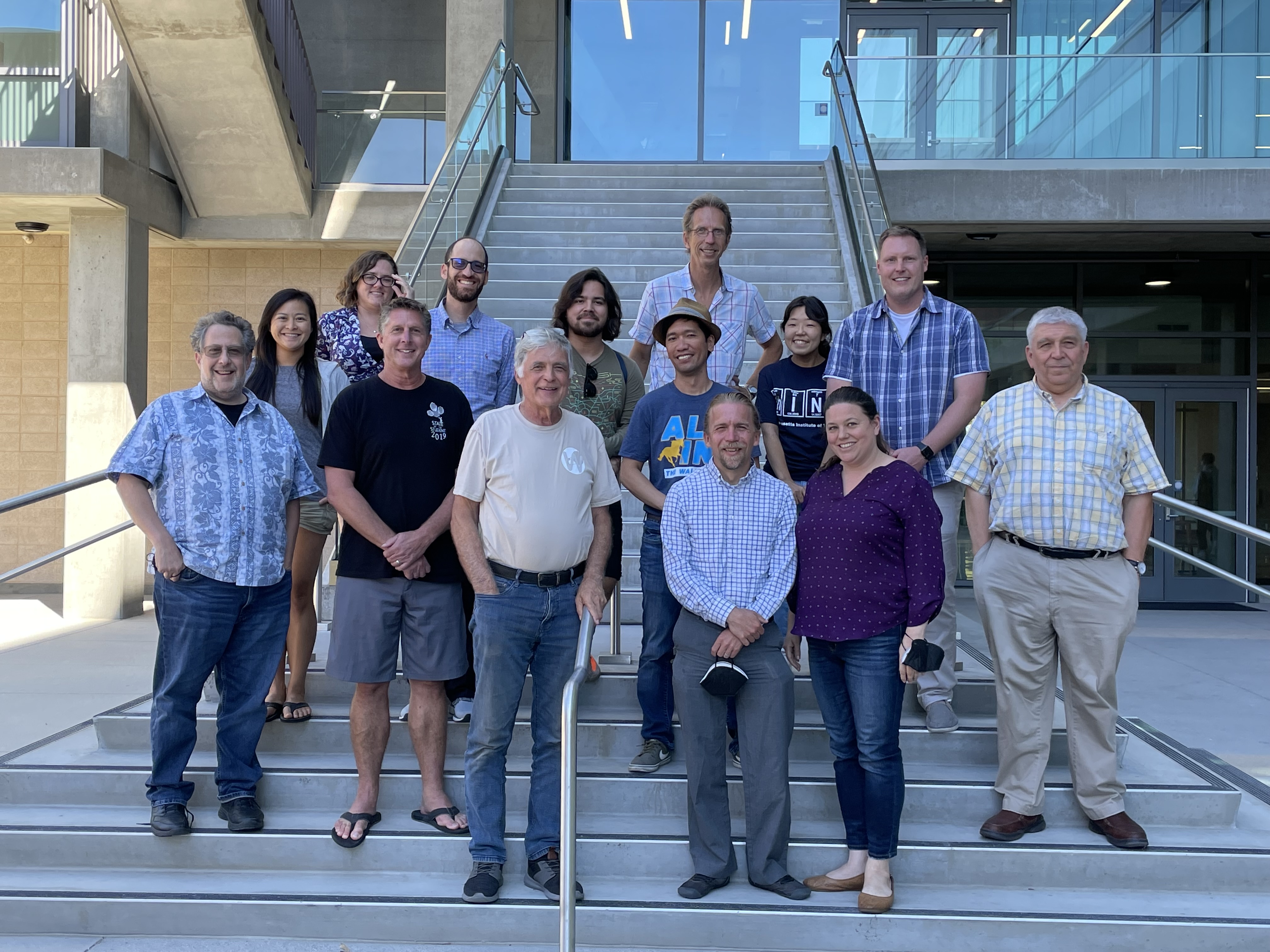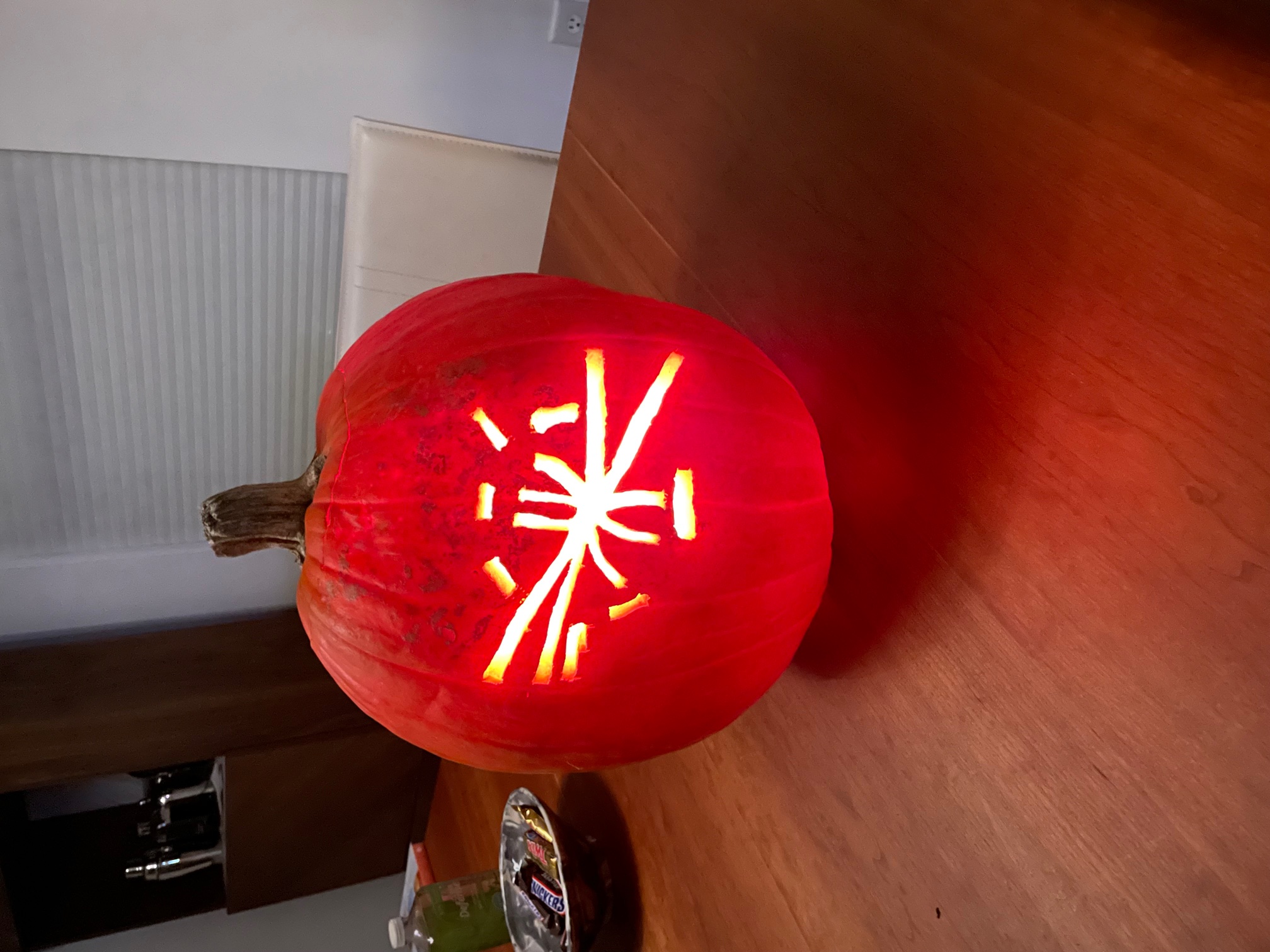Friday Flyer - October 28, 2022

Spotlight on the University of California at Irvine QuarkNet Center
The UCI QuarkNet Center had a re-start in 2022, with new mentor Pedro Ochoa-Ricoux working with long-time UCI mentor Mu-Chun Chen and QuarkNet staff to organize a workshop there on July 7-8, 2022. Participants included a mix of those new to QuarkNet, along with teachers who have been involved in the program for many years. Joe Wise brought along a pair of cosmic ray detector counters for demonstration purposes, and talked about a project at Wildwood School in Los Angeles to integrate radio astronomy and cosmic ray detection. Michael Smy and Jianming Bian, both faculty at UCI, guided the teachers through a series of lab tours, including the "High Bay" where they saw firsthand neutrino-detection tech like pro-grade photomultiplier tubes. Another tour featured a custom-made system designed to measure the transparency of water in the Super Kamiokande Experiment, and the cryogenics used to test the electronics and the purity monitors of the DUNE experiment. The workshop also included many activities from QuarkNet's DAP, and teachers analyzed events from from the MINERvA Masterclass measurement and discussed results.


News from QuarkNet Central
World Wide Data Day: Registration is now open for this year's W2D2, which will take place on Thursday, November 10. W2D2 is a chance to have a simplified masterclass experience in your school using authentic ATLAS or CMS data! Students can share results with their peers and with physicists from all over the world. And it all, from soup to nuts, takes only an integrated two hours or so. To learn more, check out the W2D2 pages, where you'll find updates, including this one. Have questions? Contact Ken or Shane.
Dark Matter Days are here! Learn more about Dark Matter Days, and search for a virtual or physical event to join.
International Cosmic Day: Registration is now open for this year's ICD, which will be held on Tuesday, November 22. Spend a day with cosmic rays and collaborate internationally! Learn more at the ICD website.
QuarkNet Educational Discussions: The next QED session will take place on Wednesday, November 2 at 7pm CT and will feature a presentation by Cardiff University astrophysicist Chris North. Want to learn more? Sign up and check the webpage!
International Masterclasses: Registration for IMC 2023 will begin on Monday, November 11. In the meantime, check out the latest IMC circular, just out today.

Physics Experiment Roundup
Run 3 is the new period of data collection at the LHC that began in July of this year. The CMS Collaboration recently announced the first preliminary physics measurement from Run 3 data. Read about CERN's "irradiation station," a new facility that will study the effect of radiation on materials that are used in high-radiation environments. Learn how LHC physicists and engineers are dealing with pesky electron clouds. Also from CERN: "LHCb's New VELO Springs Into Action."
A recent gamma-ray burst provides possible hints of dark matter. From NPR: A "burping" black hole baffles scientists. From Symmetry: "The Next Stage of Cosmic Microwave Background Research."
The Webb Space Telescope has already provided many spectacular images, including this one showing the Pillars of Creation.

Resources
On Wednesday of this week, Perimeter Institute hosted a livestreamed event called Dark Matter Night. Missed it? Not a problem...it was recorded!
Neutrinos are elusive and fast. Just how fast? Find out, from Even Bananas.
Viewed from afar, Earth appears small and simple, but those of us who call Earth home :-) know it can be a very complicated place. In a similar way, many of us might consider a proton to be small and simple. Quanta Magazine points out that the proton is also very complex. Here is something else that is (surprisingly?) complex: the movement of soap over water.
The 24th IPPOG Collaboration meeting is wrapping up today at CERN. While there, Marge Bardeen heard a talk about Higgsy, a game to learn about the Higgs boson. It's currently available as an app for iOS (available in the AppStore); developers are working on an Android version. Want to try it out and see if you can "discover" the Higgs boson? Just search for "higgsy" in the AppStore, download, then let the fun begin! (Thanks, Marge!)
Stephen Gabriel, a QuarkNet teacher in South Dakota, was recently featured in this article from the Sanford Underground Research Facility. (Very cool, Stephen!)

Just for Fun
This weekend is the perfect time to pick out your ideal pumpkin and get working on those jack-o'-lanterns! Looking for ideas regarding what to carve? Here are some "frightfully smart" ideas from Symmetry and ATLAS.
Want to add a bit of "spooky" to the party? Try these DIY Halloween science experiments from Technicality. Or...sit back, relax, and read about a spooky phenomenon from Quanta Magazine.

QuarkNet Staff
Mark Adams: adams@fnal.gov
Ken Cecire: kcecire@nd.edu
Spencer Pasero: spasero@fnal.gov
Shane Wood: swood5@nd.edu
